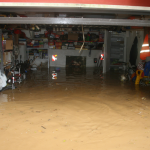5 Power Management Mistakes That Are Draining Your Energy Supply

When you’re relying on stored energy — whether for camping, off-grid living, or as a backup during outages — every bit of power counts. Yet, many people unintentionally shorten the lifespan of their energy reserves through poor habits and overlooked details. The result? flat batteries and frustration at the worst possible moment. Something as simple as using a battery monitor can help you spot problems before they happen, but it’s only one part of a bigger picture. Understanding where most people go wrong is the first step to making your stored energy last longer and perform better.
Here are five common mistakes and how to avoid them so you can keep your devices, tools, and appliances powered for as long as possible.
Overcharging or Deep Discharging Your Batteries
Many people assume that if a little charging is good, a lot must be better. Unfortunately, constantly charging your battery to 100% or letting it drain all the way to empty can cause significant wear over time. Overcharging can lead to heat build-up, while deep discharging can permanently reduce capacity. This is especially important for lithium and lead-acid batteries, which have specific charging ranges for optimal performance.
The best approach is to keep your batteries within a healthy charge window — usually between 20% and 80% for lithium and 50% to 80% for lead-acid. Doing this helps prolong battery life and ensures you have reliable energy when you need it most.
Running High-Draw Appliances Without Planning
It’s tempting to plug in that electric kettle, portable heater, or induction cooktop when you’re off-grid. But high-draw appliances can deplete your battery bank far faster than you expect. If you’re not monitoring consumption, you can burn through hours of stored power in minutes.
Instead, prioritise essential devices and spread out usage to avoid sudden drains. If you must run high-demand equipment, try to use them when your charging source (like solar panels) is actively generating power, so you’re drawing less from storage.
Forgetting to Turn Off Standby Devices
Standby mode might seem harmless, but many electronics still draw a small current when “off” — a phenomenon known as phantom load. Over time, these small draws can add up, leaving you with less available power than expected. This is especially common with TVs, inverters, chargers, and anything with an LED light that stays on.
A simple habit of unplugging unused devices or switching them off at the source can save hours of battery life over the course of a day. Using power strips with master switches makes this much easier to manage.
Not Maintaining Your Batteries
Batteries, like any equipment, need care. Failing to inspect them regularly can lead to unnoticed damage, reduced efficiency, or even dangerous faults. For lead-acid batteries, neglecting electrolyte levels can shorten their lifespan. For lithium batteries, ignoring software updates in smart battery systems can mean missing out on performance improvements.
Clean connections, check cables for corrosion, and ensure your storage area is free from moisture and extreme temperatures. Regular checks take minutes but can prevent costly failures.
Ignoring Energy Efficiency Altogether
Many people focus entirely on battery capacity while overlooking the role of efficiency. If your devices, appliances, or lighting are outdated and power-hungry, you’re wasting precious stored energy. Swapping halogen or incandescent lights for LED, using energy-efficient appliances, and investing in quality inverters can drastically improve how long your power lasts.
This principle extends to your habits too. For example, charging multiple devices at the same time while your energy source is active (like mid-day with solar) reduces the drain on your stored reserves. Likewise, cooking with insulated pots, using thermal cookers, or pre-chilling items in a fridge before switching to battery power can stretch your supply significantly.
Making the Most of Your Energy Supply
Managing stored power isn’t just about the battery — it’s about the entire system and how you interact with it. Knowing when to use high-demand devices, reducing phantom loads, and maintaining your equipment can make the difference between running out of power unexpectedly and comfortably getting through your off-grid stay or blackout.
Small changes add up. Using timers, upgrading old appliances, and tracking consumption will give you more control. And remember, energy management is not just for those living remotely — even in urban environments, being mindful of your usage helps in emergencies and reduces overall strain on your systems.
By avoiding these five mistakes and making a few smart adjustments, you’ll get the most out of your stored energy. That means less stress, more comfort, and power exactly when you need it most.






























